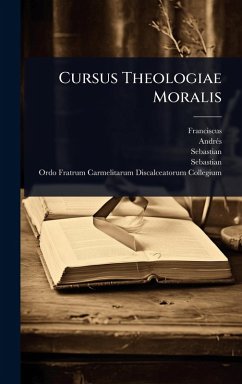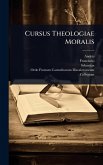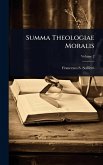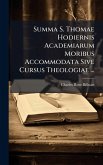Cursus Theologiae Moralis, Tomus Quintus, is a theological work written in Latin, addressing principles of morality and interpretations of the Decalogue. This volume, part of a larger series, contains four treatises covering the principles of morality and detailed discussions of the first three commandments. Authored by Franciscus (a Jesu Maria), AndrÃ(c)s (de la Madre de Dios), Sebastian, Sebastian (de San Joaquin), and the Ordo Fratrum Carmelitarum Discalceatorum Collegium (Salamanca), this text offers insights into Carmelite theological thought and the Catholic moral tradition. It is an essential resource for understanding historical perspectives on Christian ethics and moral theology, particularly within the context of the Discalced Carmelite Order's scholarly contributions. This work has been selected by scholars as being culturally important, and is part of the knowledge base of civilization as we know it. This work was reproduced from the original artifact, and remains as true to the original work as possible. Therefore, you will see the original copyright references, library stamps (as most of these works have been housed in our most important libraries around the world), and other notations in the work. This work is in the public domain in the United States of America, and possibly other nations. Within the United States, you may freely copy and distribute this work, as no entity (individual or corporate) has a copyright on the body of the work. As a reproduction of a historical artifact, this work may contain missing or blurred pages, poor pictures, errant marks, etc. Scholars believe, and we concur, that this work is important enough to be preserved, reproduced, and made generally available to the public. We appreciate your support of the preservation process, and thank you for being an important part of keeping this knowledge alive and relevant.
Bitte wählen Sie Ihr Anliegen aus.
Rechnungen
Retourenschein anfordern
Bestellstatus
Storno








